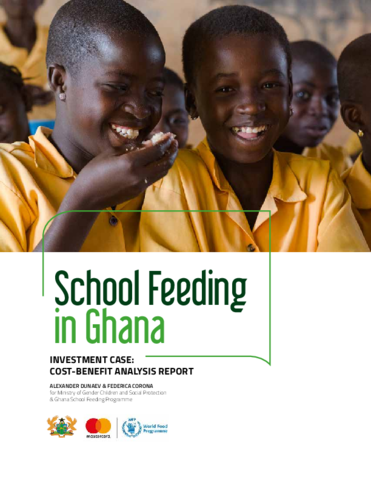
The Ghana School Feeding Programme is a social protection intervention aimed at increasing school enrolment, attendance and retention, reducing hunger and malnutrition, and boosting domestic food production. The number of children who receive school meals has increased from 1,900 in its first year (2005) of implementation to 1.7m (2017), with an equivalent increase in expenditure. The Cost Benefit Analysis shows the need to invest in school feeding, projecting it as an investment and not a cost. The report further makes a case for an increase in the feeding grant.
